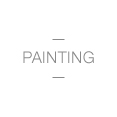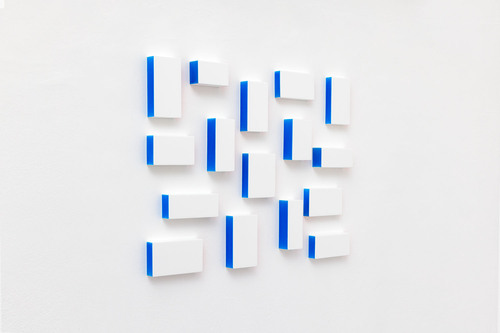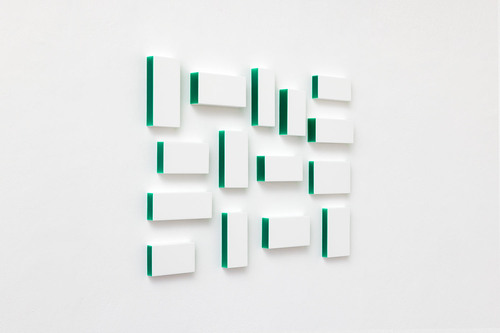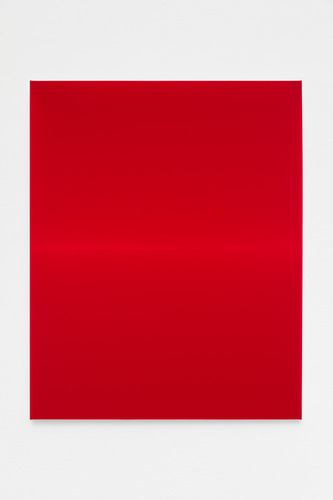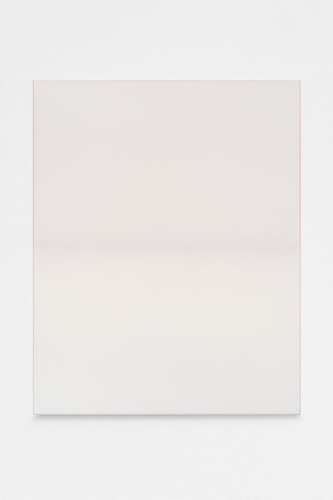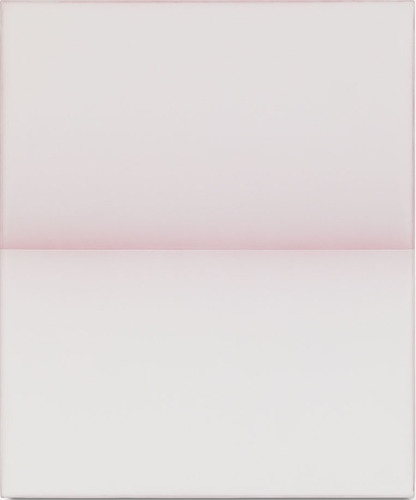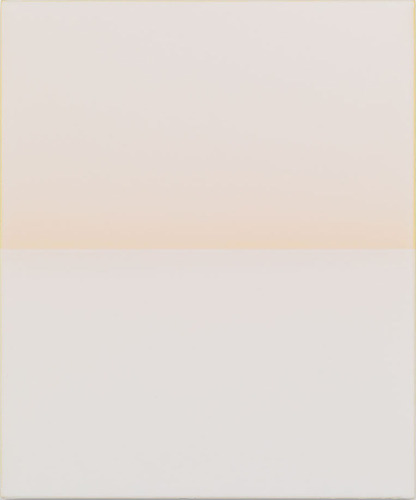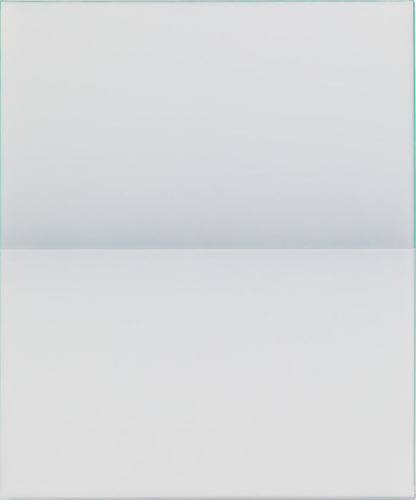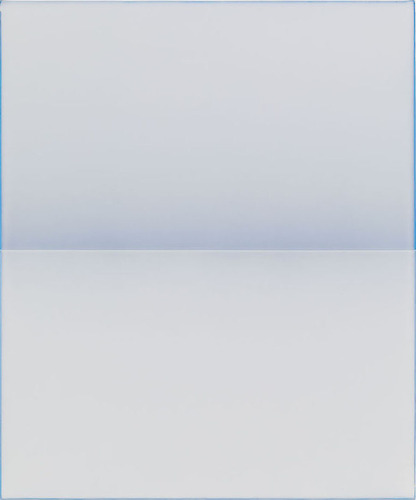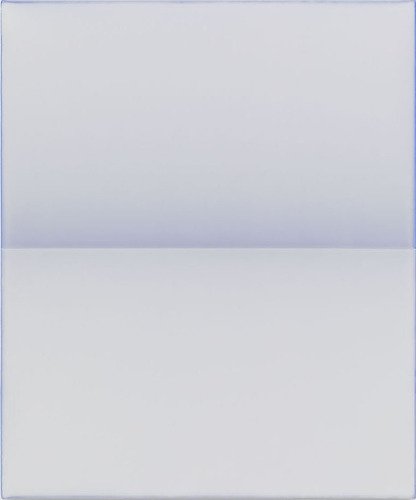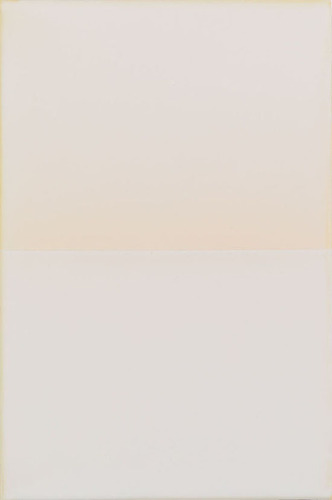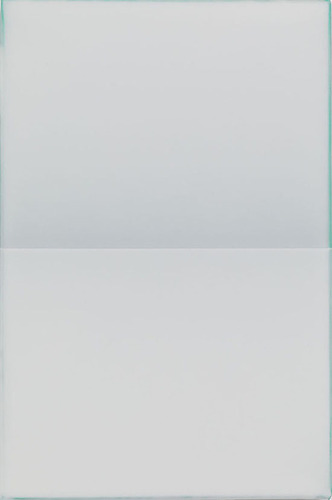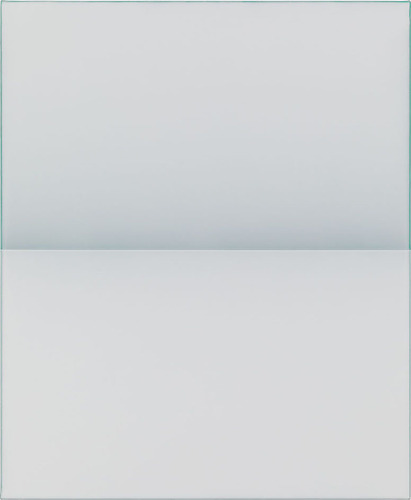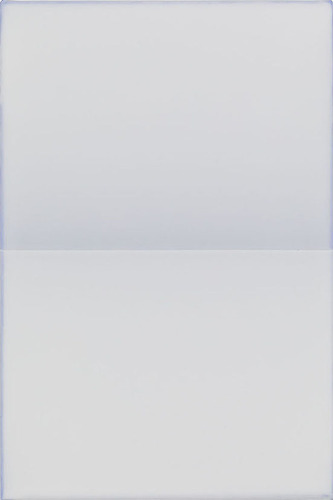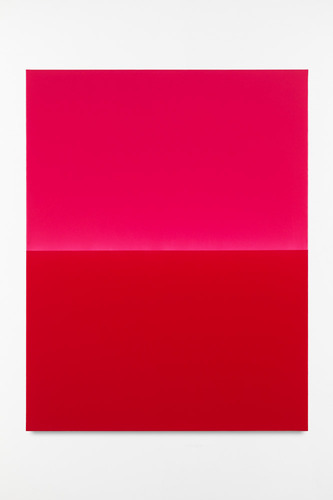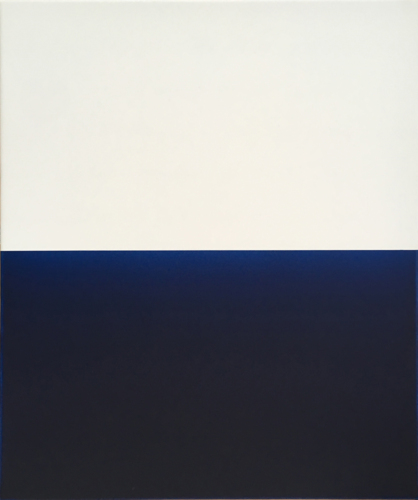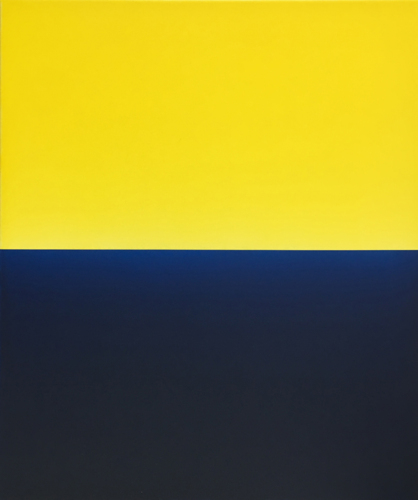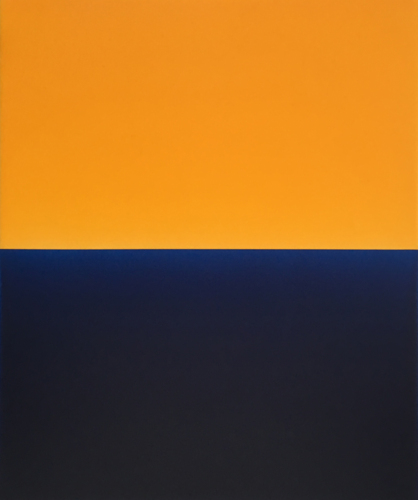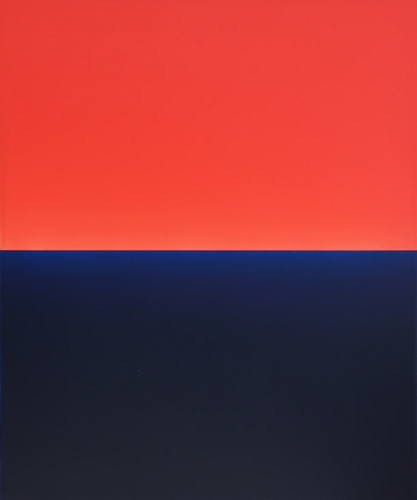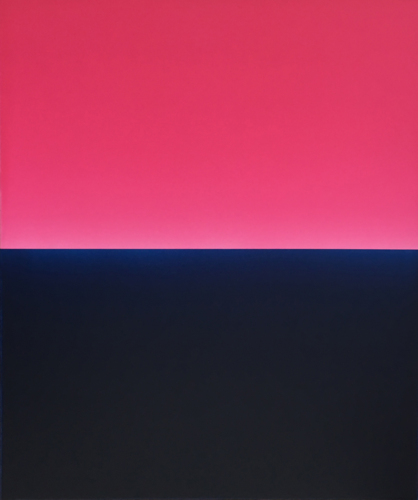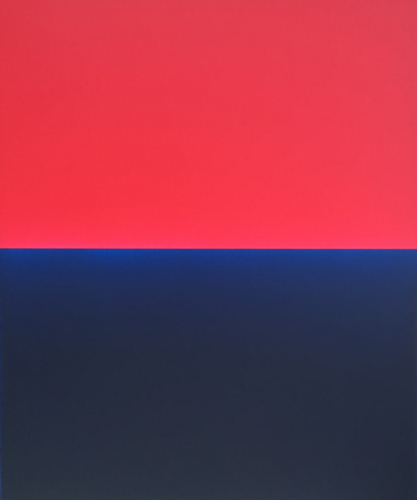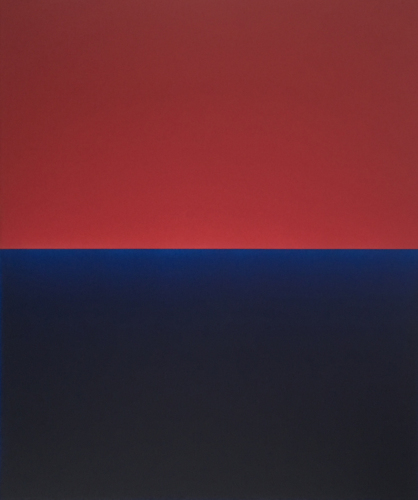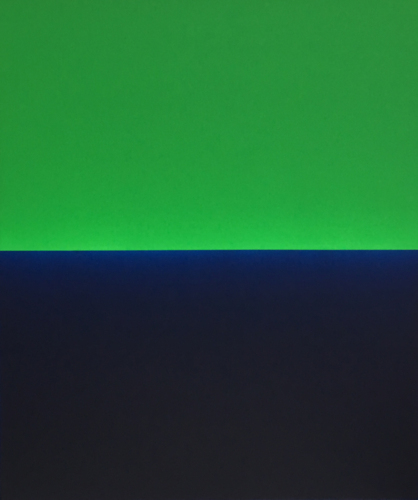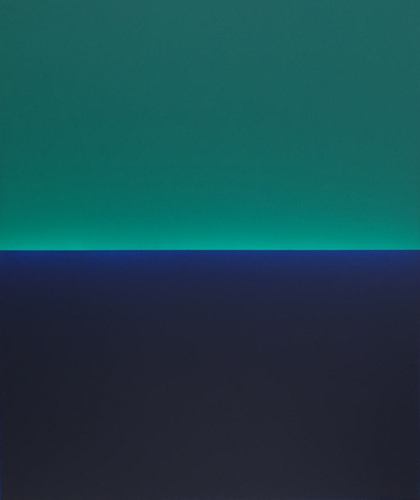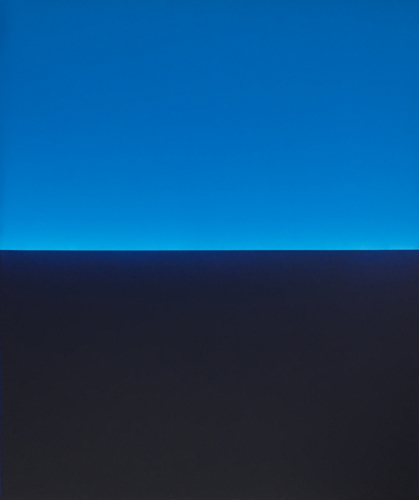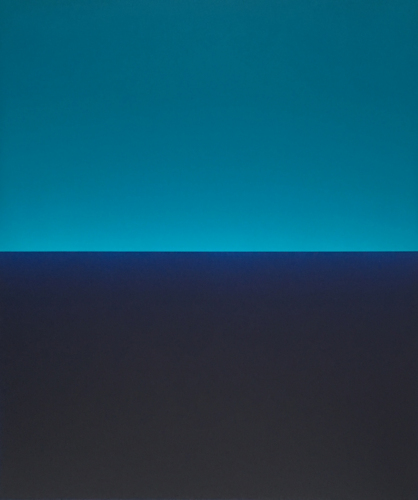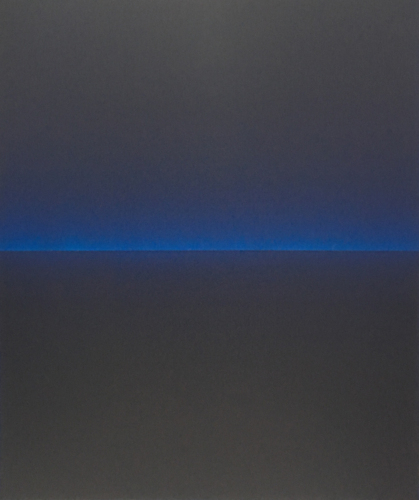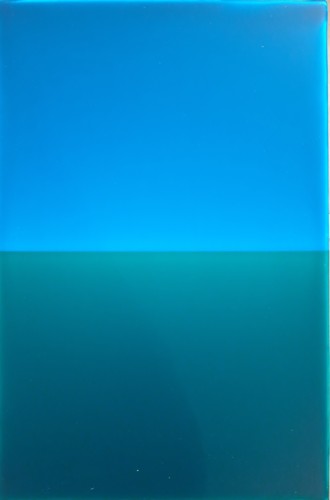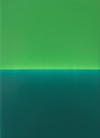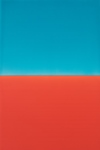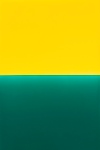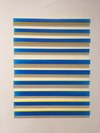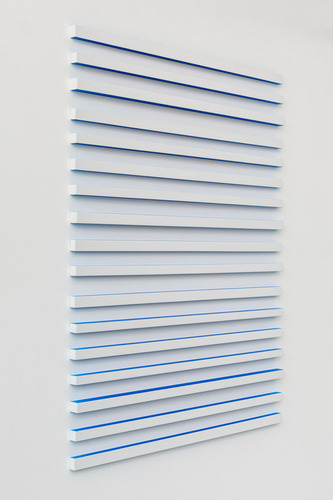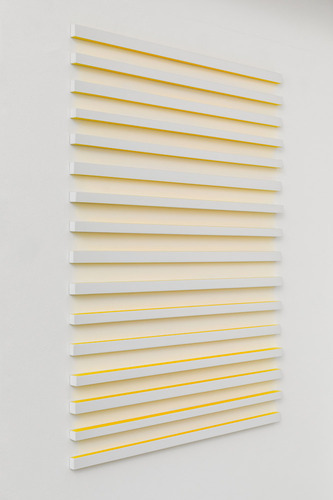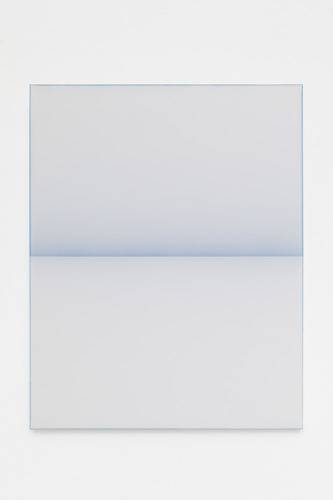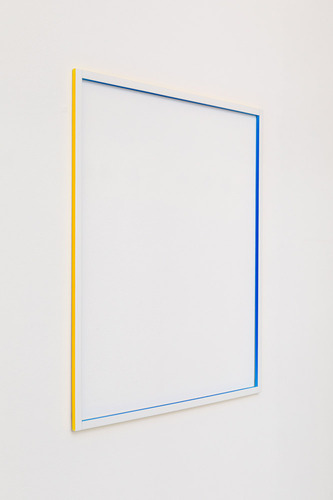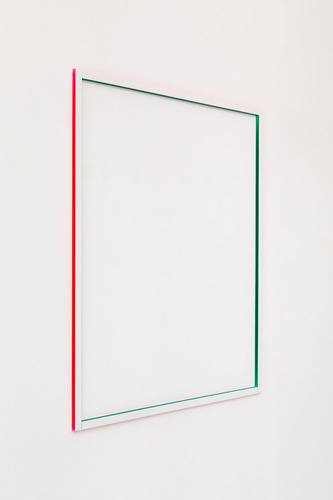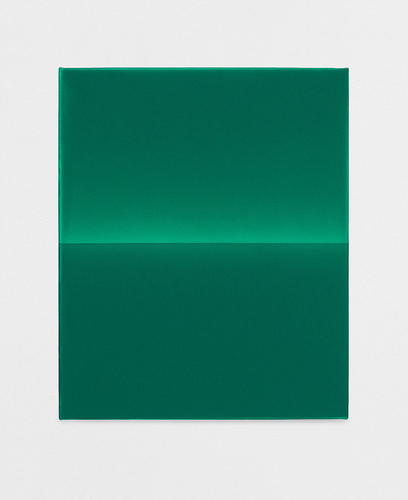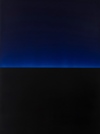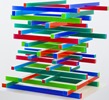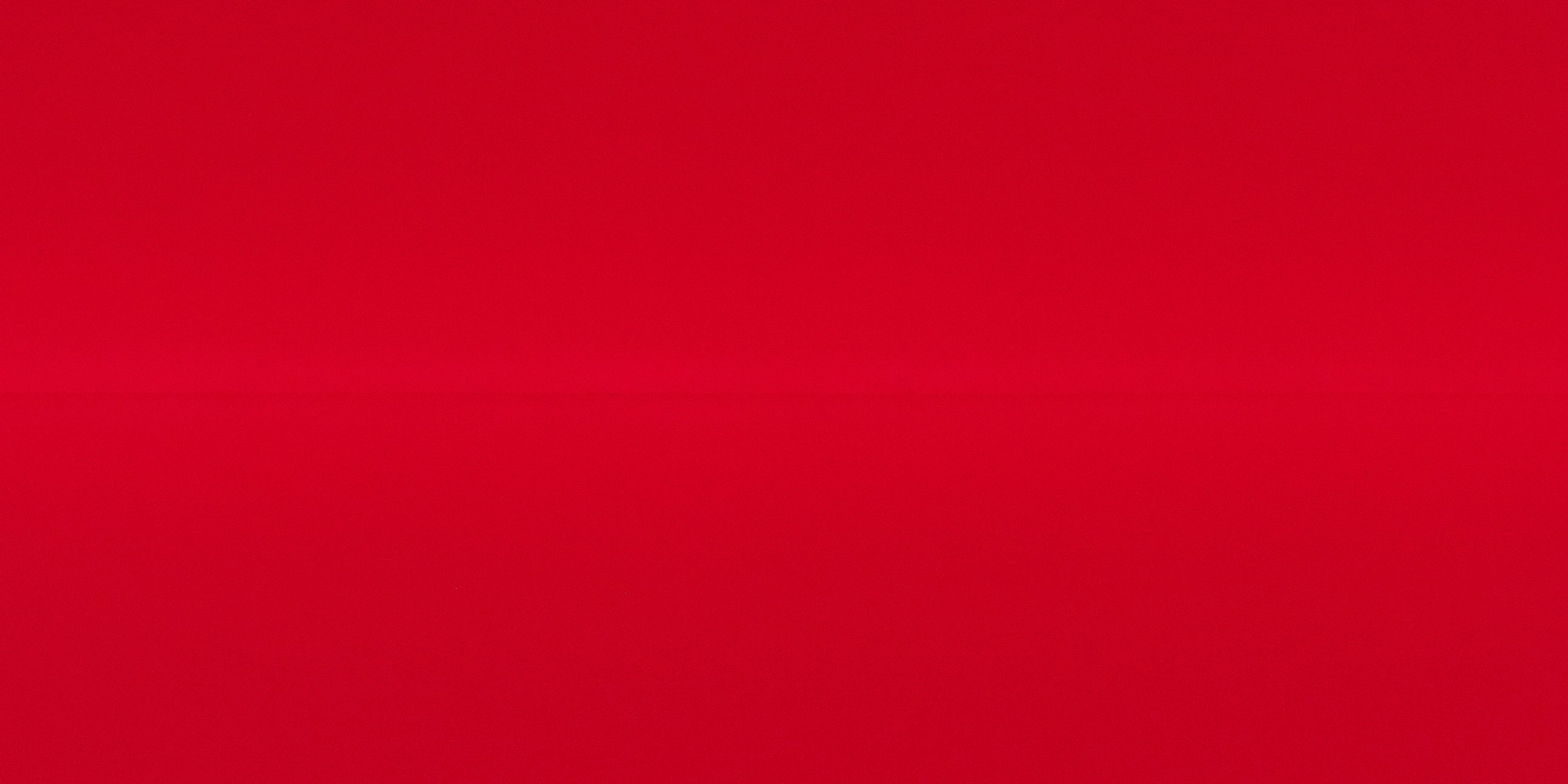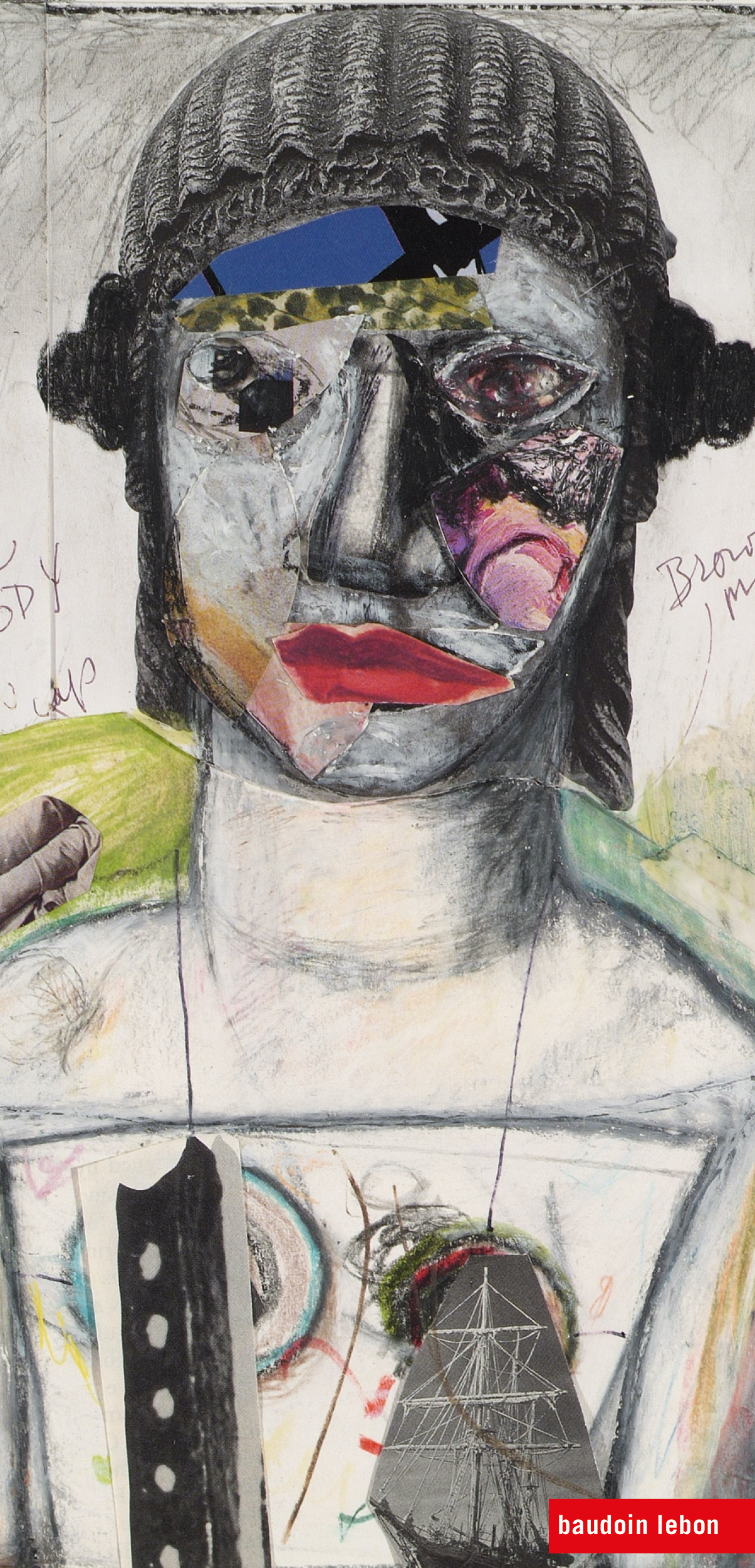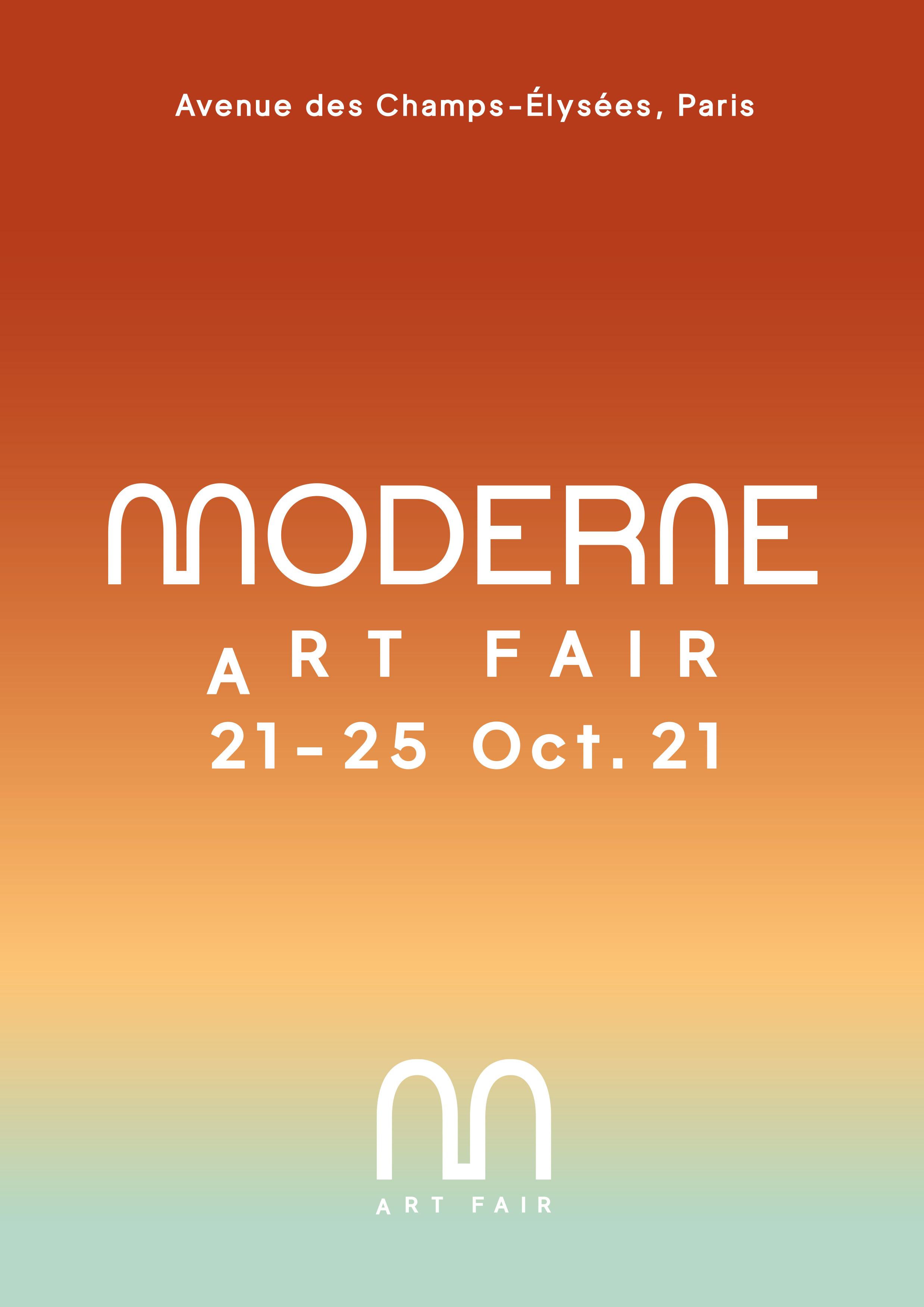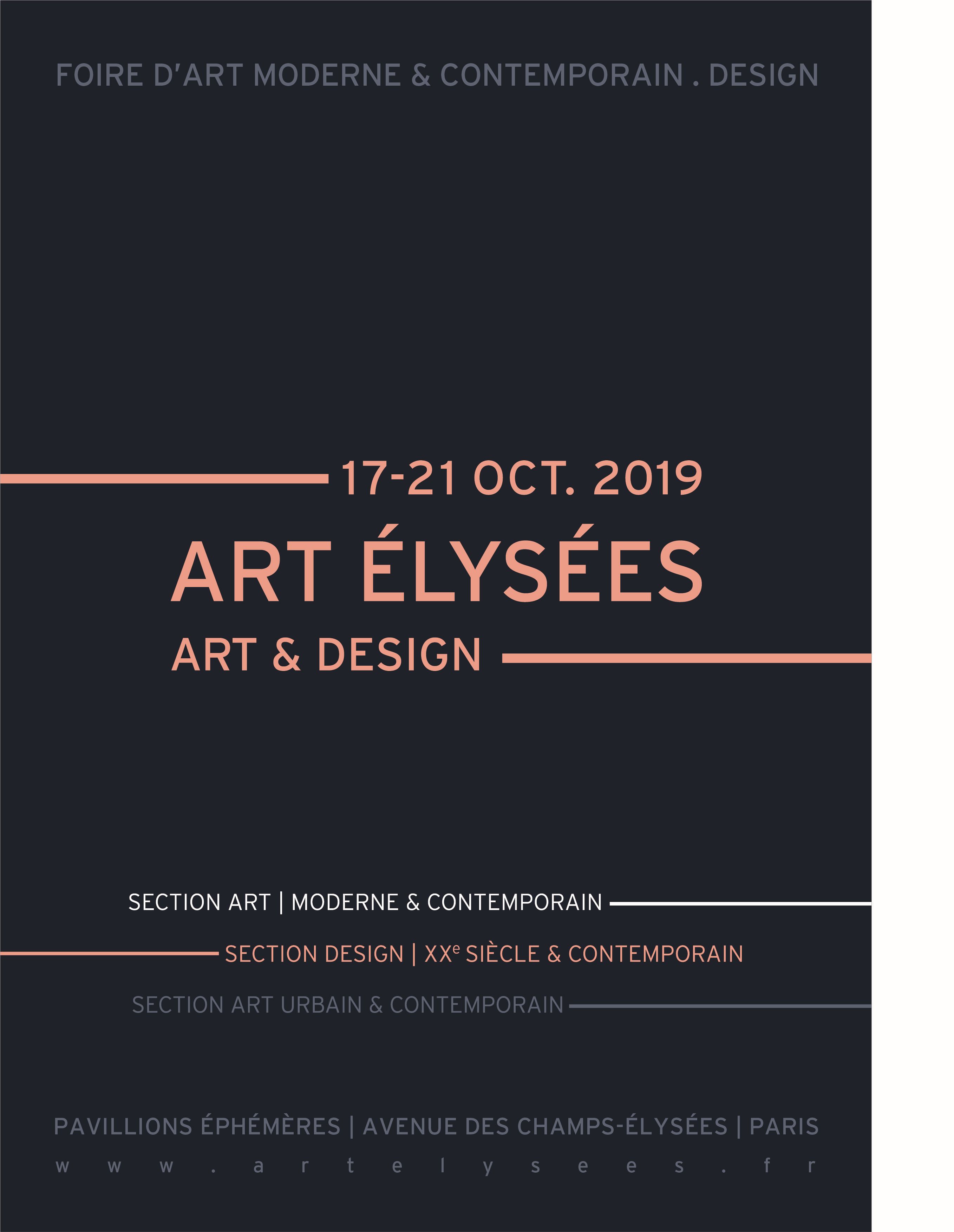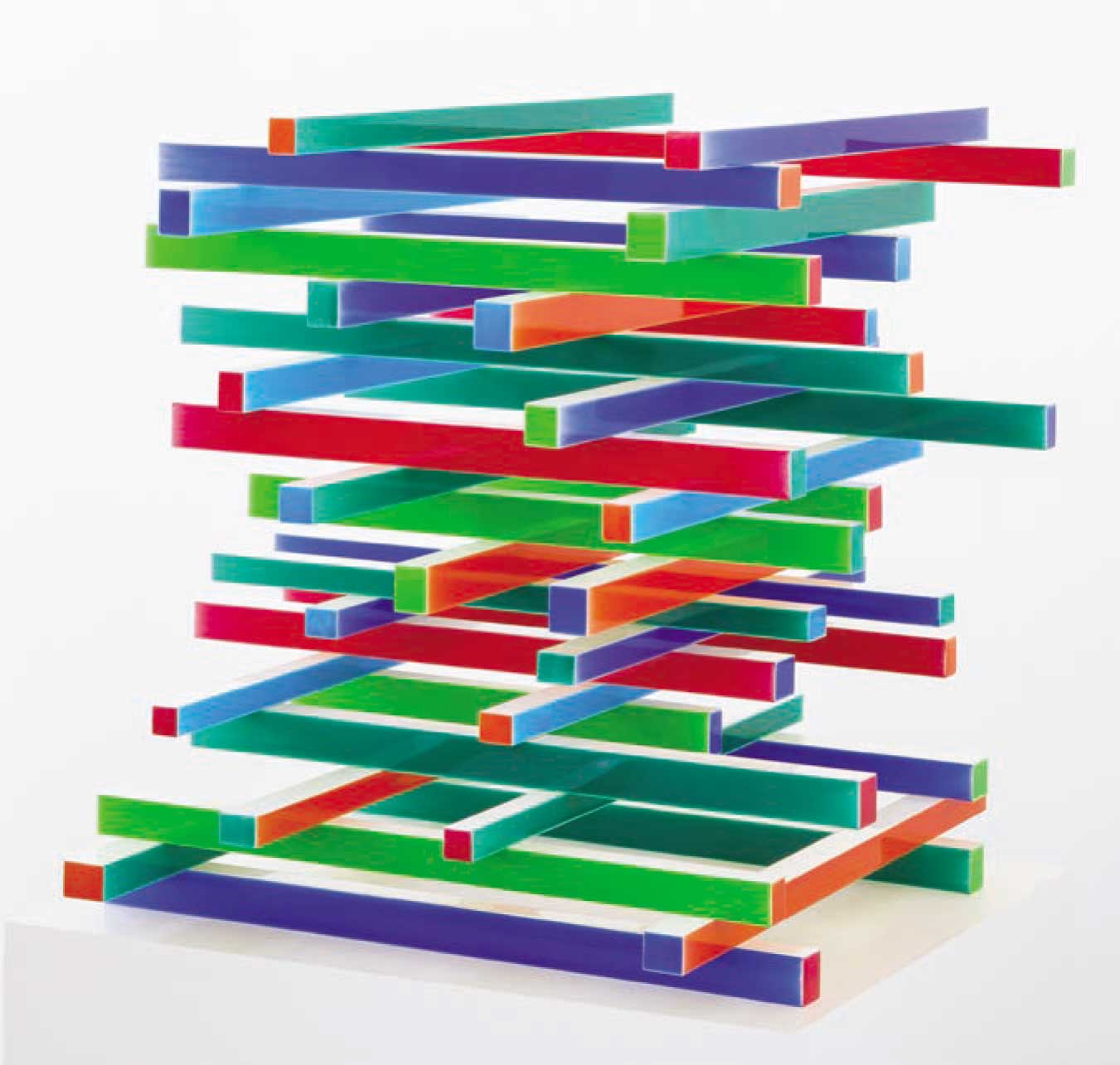Elissa MARCHAL
Introduction
Born in Paris in 1973 where she lives and works, Elissa Marchal belongs to this generation of artist that followed the footsteps of both the twentieth century abstraction movements, and the Modernist of the twenty-first century such as Mondrian and Matisse. Not only does her work recall those past, it also aims to renew and refresh those artistic concepts.
For example, while maintaining a homogeneous texture of colour in her Constructions, Elissa Marchal creates a paradoxical lightness to her intricate sculptural works by dripping paint on its extremities with colour gradients. The contradiction that emerges between the material, the technique and the colour enables to create a painterly composition without any strokes, something that is new, more physical than traditional painting and yet that links to former influences such as Jackson Pollock and Frank Stella.
This technical and theoretical exploration continues with the Jalousies, Cadres and the Horizon series, where colours, reflection and emptiness question the boundaries between different mediums. In the Cadres series Elissa Marchal uses only one constitutive elements of the painting medium, its frame, to create an object that challenges the traditional perception of image making.
Similarly, Jalousies with its subtle linearity and minimalistic appeal, unveils through thin reflections of colour on the white wall a larger problematic. What are the limits of the art object and what parts of the spectactor's subjectivity plays into this conceptual construction? Both art and spectator are at constant interplay.
This process continues with the Horizon series. The spectator is confronted to the double perception of attraction and repulsion, through the contrast of two equally sized coloured rectangle, and the creation of a border between both on the painting. This new frontier of colour, thus, allows for an infinite reading and aesthetic experience, varying between its two minimalistic but intense poles.
Her work is a continual reflexion on the role of shape and colour within the medium of painting. She has often participated in the Salon de Montrouge and the Salon des Réalités Nouvelles which are two mainstay of the French art scene to discover new talented artists.
Biography
Solo exhibitions
2021
- Intervalles, baudoin lebon gallery, Paris, France
-
The Space between, Mark Rothko Art Center, Daugavpils, Lettonie
2020
- Horizons, La Borne, POCTB, Orléans, France
2019
- Révéler, baudoin lebon, Paris, France
2017
- Horizons et Sédimentations, Galerie Anne-Laure Jalouneix, Bordeaux, France
- Horizons, Château de Chassagne-Montrachet, Bourgogne, France
2014
- Medium 1.14 - Horizontales et verticales, Galerie Anne-Laure Jalouneix, Bordeaux, France
2013
- Assemblages, Galerie du Haut-Pavé, Paris, France
Group exhibitions
2022
- Moderne Art Fair, baudoin lebon, Paris
2021
- Le dernier matin du monde, Moments artistiques, Paris L'entretien de la peinture, Galerie art absolument, Paris Moderne Art Fair, baudoin lebon, Paris
2020
- Blancs, Galerie Abstract Project, Paris, France
- Ce qui aurait pu être, Galerie Abstract Project, Paris, France
- Bleu, baudoin lebon, Paris
2019
- Pause, Atelier de François Jeune - Centre d'art Le Hézo, Morbihan
- Art Elysée, baudoin lebon, Paris, France
2017
- Lignes, Harmonies et Contrepoints, Galerie Wagner, Le Touquet, France
- Couleurs plurielles, Galerie Wagner, Le Touquet, France
- De l'original au multiple, Galerie Wagner, Le Touquet, France
- Galerie du Haut-Pavé, Paris - Exposition événement à l'occasion de la sortie du catalogue 2007-2017
- Carrément 4, Espace Christiane Peugeot, Paris, France
2016
- Hommage au carré, Galerie Wagner, Le Touquet, France
- Petits formats, Galerie du Haut-Pavé, Paris, France
2015
- De rendez-vous en rendez-vous, Galerie du Haut-Pavé, Paris, France
- Thought on Paper, Gallery Satoru, Tokyo, Japon
2014
- De rendez-vous en rendez-vous, Galerie du Haut-Pavé, Paris, France
- Toujours simple, Galerie ParisCONCRET, Paris, France
- Service Culturel de Gentilly Propositions d'acquisition pour le Fonds Municipal d'Art Contemporain
- Regard sur la jeune abstraction contemporaine, Galerie Le Corbusier, Trappes-en-Yvelines
2013
- Couleurs, lueurs &co, Service Culturel de Gentilly, France
- Line upon line, Galerie Paris CONCRET, Paris, France
2012
- Novembre à Vitry, France
2011
- Novembre à Vitry, France
2010
- Gallery Satoru, Tokyo, Japon
2009
- Tokyo Contemporary Art Fair, Galerie Satoru, France
2008
- Salon de Mai
2007
- Novembre à Vitry, France
- Salon de Montrouge
- Salon des Réalités Nouvelles
- Gallery Satoru, Tokyo, Japon
2006
- Centre culturel de St-Genis-Pouilly, Ain, France
- Salon de Montrouge
- Salon des Réalités Nouvelles
2005
- Salon des Réalités Nouvelles
2004
- Salon des Réalités Nouvelles
public collections
texts
For example, while maintaining a homogeneous texture of colour in her Constructions, Elissa Marchal creates a paradoxical lightness to her intricate sculptural works by dripping paint on its extremities with colour gradients. The contradiction that emerges between the material, the technique and the colour permits to create a painterly composition without any strokes, something that is new, more physical than traditional painting and yet that links to former influences such as Jackson Pollock and Frank Stella.
This technical and theoretical exploration continues with the Jalousies, Cadres and the Horizon series, where colours, reflection and emptiness question the boundaries between different mediums. In the Cadres series Elissa Marchal uses only one constitutive elements of the painting medium, its frame, to create an object that challenges the traditional perception of image making.
Similarly, Jalousies with its at first subtle linearity and minimalistic appeal, unveils through thin reflections of colour on the white wall a larger problematic. What are the limits of the art object and what parts of the spectactor?s subjectivity plays into this conceptual construction. Both art and spectator are at constant interplay.
A process that continues with the Horizon series. The spectator is confronted to the double perception of attraction and repulsion, through the contrast of two equally sized coloured rectangle, and the creation of a border between both on the painting. This new frontier of colour, thus, permits an infinite reading and aesthetic experience, varying between its two minimalistic but intense poles.




